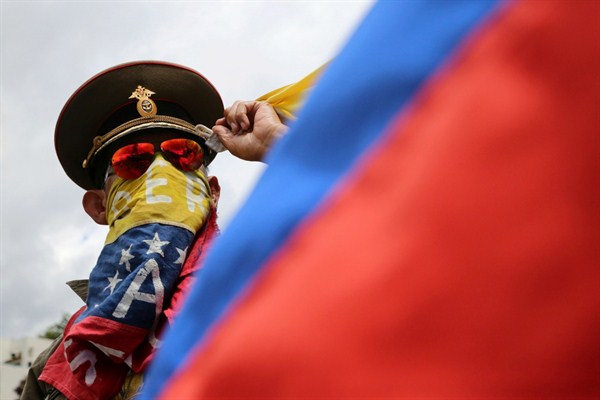The United States issued a new batch of sanctions against Venezuela last Friday, targeting high-ranking members of President Nicolas Maduro’s regime and setting up a “financial blockade” against the state-owned institutions that fund them. Cutting off Maduro’s revenue may be the key to his ouster, U.S. officials have said, but restoring democracy in Venezuela after he’s gone looks to be a more complex, internal issue.
Much of the pressure on Maduro still originates inside Venezuela, from politicians at all levels of government who oppose his dictatorship and hope to one day regain control of the country’s political future. The opposition coalition known as the Democratic Unity Roundtable, or the MUD by its Spanish acronym, has been hard at work since 2008 trying to prevent or at least slow the erosion of Venezuela’s democratic institutions under the self-described socialist revolution of Maduro and his mentor, former President Hugo Chavez.
Yet the MUD has shown recent signs of fracturing, due to disagreements over what strategy it should take in combating Maduro after he pulled off fraudulent and unconstitutional elections in July. The opposition’s inability to prevent that vote, despite its control of the legislature, known as the National Assembly, allowed Maduro to install his own Constituent Assembly to replace the legislature and start the process of writing a new constitution that is expected to grant him additional powers. The opposition has called any plans to change the constitution illegal because the process was not approved by a majority of Venezuelans in a referendum.

